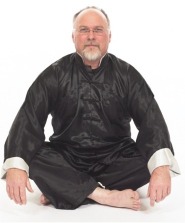I have learned through painful experience that partner work and physical corrections make up a potentially very sensitive subject – martial arts people will probably wonder why I am bothering to write about this at all – whereas beginners or people with no experience of interpersonal physical activity may well recoil that I even dream of writing about it – let alone speak of it as normal, when they may well find the prospect completely frightening, foreign, unnecessary, invasive and more – especially if it involves touch across the gender line. If that is you please bear with me and understand that this is one of those deeply personal subjects that spans very divergent extremes.
You may be someone who emotionally or for religious reasons avoids interpersonal contact completely – or you may be a martial artist or sports person into wrestling, dancing or similar, to whom close/intimate contact with strangers is normal, necessary and an important learning tool. So this piece is intended to address those people more toward the avoiding end of the spectrum with the hope that you may be somewhat reassured and perhaps even encouraged.
Humans are a social species with close personal contact ingrained in our psyche from ancient ancestral grooming and physical closeness in communal living. This is something our modern society has led us to draw away from in recent generations. It is also something associated with our vulnerability and our sexuality – so today many of us do not comfortably interact with close touch especially with strangers in public even in a relatively controlled group environment. Nonetheless when we see a child or adult crying (especially close family or friend) our first, and natural response is usually to make some sort of physical contact – maybe to hug, kiss or massage it better.
We need to remember our ancestral roots and the physical communication that is such a fundamental part of our species existence. Interestingly once people cross that intellectual fear barrier they generally become quite comfortable with partner work and physical correction – as they come to understand it’s benefits and how physical interaction forms an essential part of the healing and learning processes – especially with an internal art such as Tai Chi.
Personally I was brought up in a family both distant and smothering derived from post Victorian parenting – which led to a very conflicted view of this subject, but now with the perspective of martial arts training since 1971 it is really not a problem, except in judging and dealing with the extent to which students – especially female beginners – are comfortable with this vitally important aspect of Tai Chi. Issues of pain, responsibility, respect, appropriateness and intimidation are replaced by the benefits of enhanced awareness, clearer understanding, easier trust on many levels, the use of pain signals in learning and healing as well as an appreciation of how physical communication can enhance relationships by grounding and bonding the partners
Not only is touch an extremely quick way to communicate, it is also a very reliable way that can communicate many things words are completely incapable of conveying – we should remember that words after all only make up 30% of communication – visually physical and tonal voice cues generally make up the remaining 70% – until we factor in touch which often overrides all the rest – try closing your eyes and moving around a bit. It is difficult to lie with touch or physical expression, whereas words and intellectual models are not only inaccurate but make lying easy and common.
Clearly this is a much bigger subject than a few martial artists training together – if you do not include partner work in your training you will be missing out on the very core of Tai Chi and risk being blinded by lack of understanding that goes with the un-knowingness of simply not having the experience. Fears are involved here so I would strongly urge Tai Chi practitioners – actually probably everybody – to look at what is stopping them from dealing with them. If you choose not to that is fine – it is your choice, but in my view a severley limiting one.




